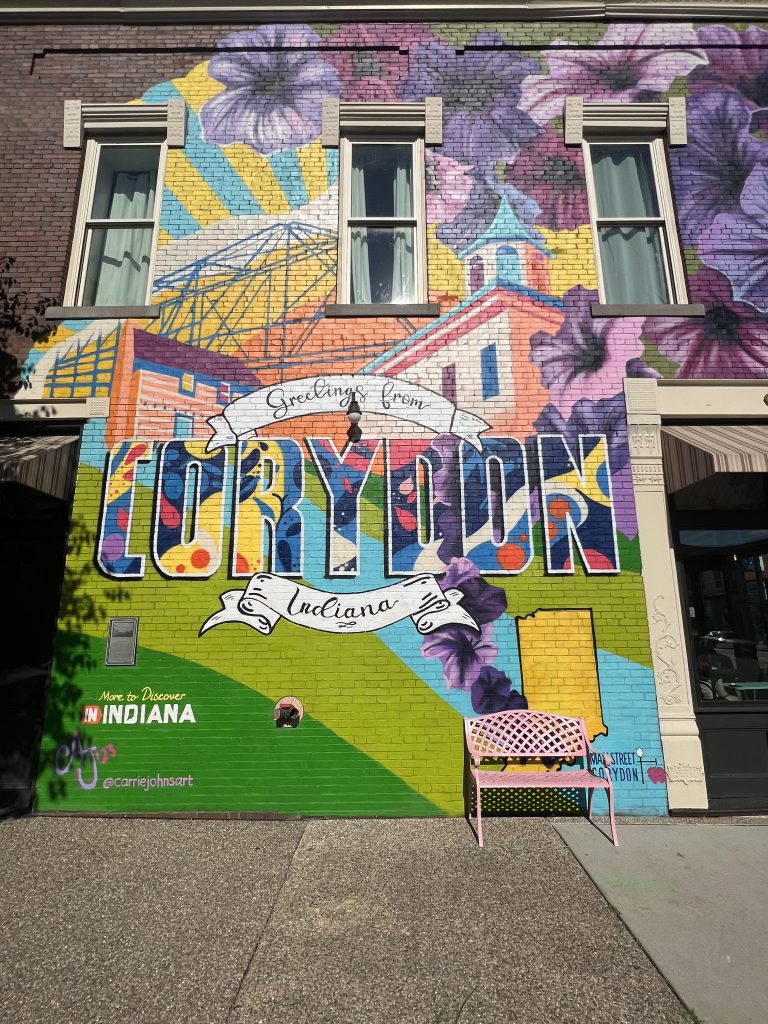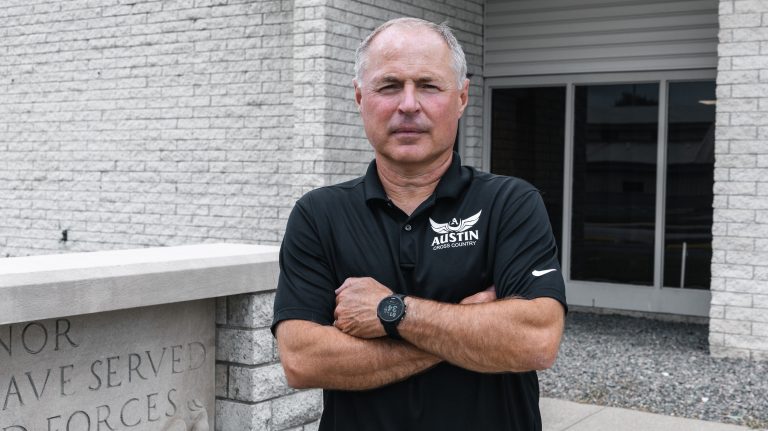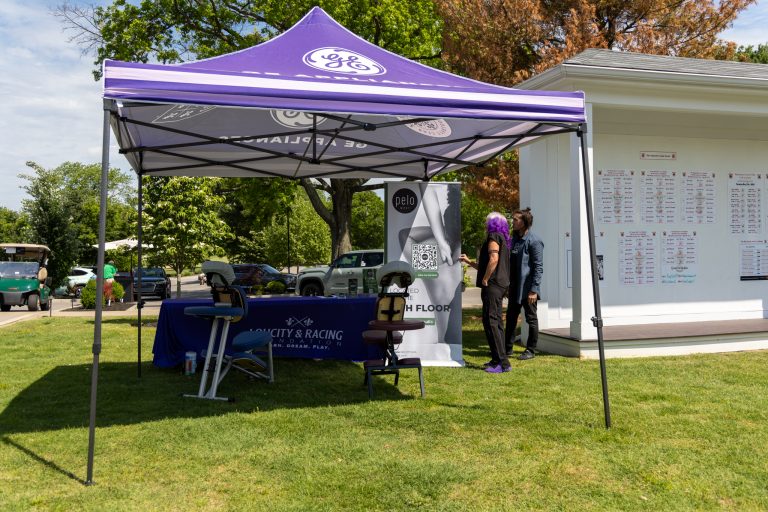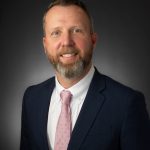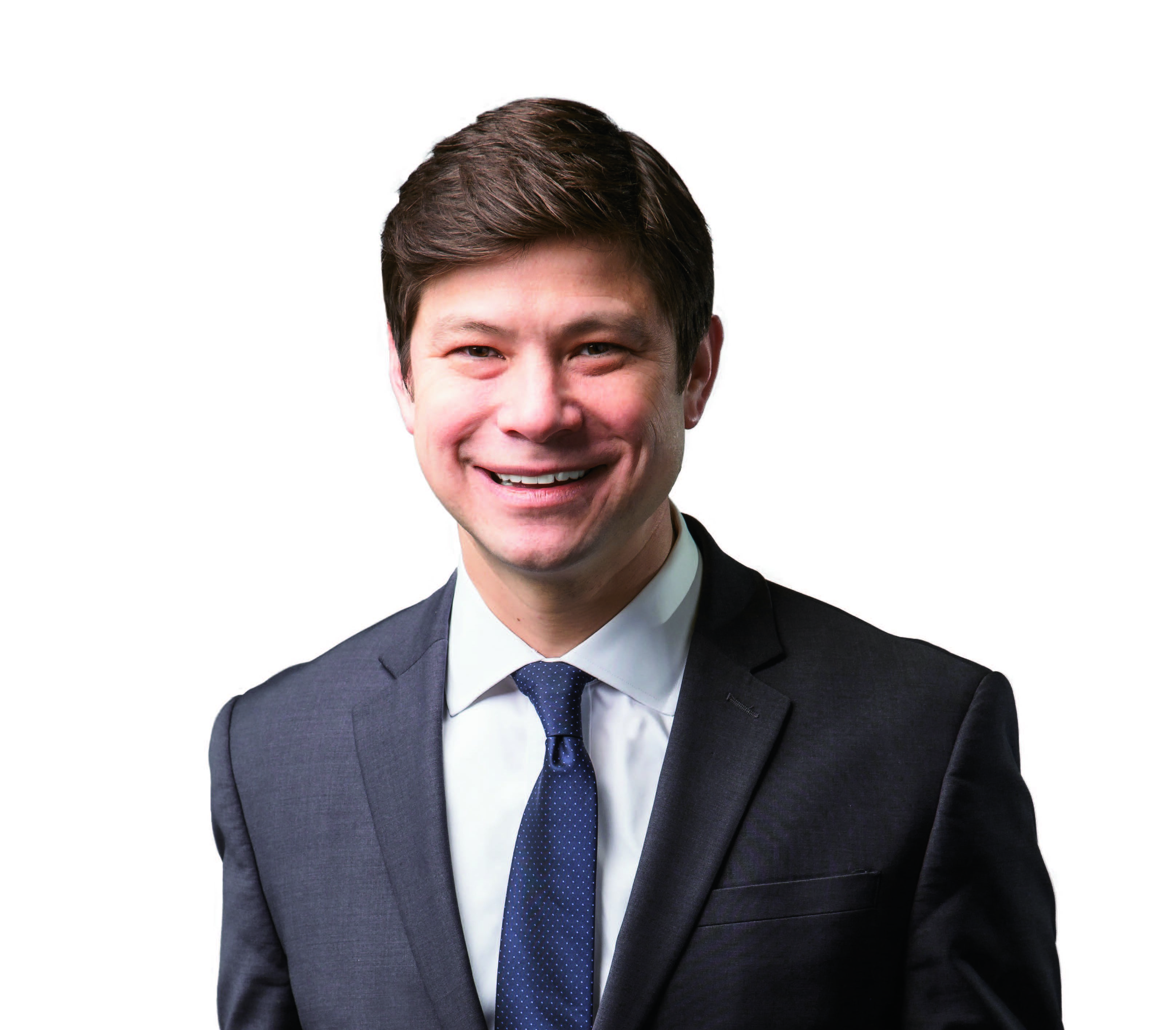
Former Senate candidate takes on his second act
BY MANDY WOLF DETWILER | PHOTOS BY CHRISTIAN WATSON
Andrew Takami is the director of Purdue Polytechnic New Albany. Once a candidate for the U.S. Senate, he withdrew from consideration after failing to secure enough signatures to run. But never count a good man down.
Takami has his second act planned, and he credits a longtime mentor, faith and family for the ability to make a difference. Extol recently talked to Takami about his plans for the future.
EXTOL: As a Republican, you once ran for a U.S. Senate seat. Why did you feel it was your civic duty to do so?
ANDREW TAKAMI: I think many people wonder about their responsibilities in life, and I’m no different. I’ve had people who have really mentored me over the years and really poured into me, and I realized that I really have a lot of responsibilities for my life. I’ve always been willing to work diligently for whatever God had for me to do. One of the things I remember is I got a book from a Purdue professor and it’s a picture book. The name of the book is What To Do When It’s Your Turn (and It’s Always Your Turn). The thing that I was really impressed about is that at some point, it’s your turn to do something, and it’s your responsibility to get out and try. You have to do the best you can, because tomorrow it’s somebody’s else’s turn and it’s your turn to help mentor them … My wife came to me and said if (running for the Senate) was something God wanted me to do, that she would support me. All these years, she’s discouraged me from running for public office because she recognized it was a different time. I really saw the public square as an opportunity to sort of espouse these philanthropic principles that are very much at the core of our Constitutional Republic.
EXTOL: That leads us to your newest venture. Tell us a little about it.
TAKAMI: My new venture is Andrew Takami Philanthropy (ATP), a business my wife and I launched after my 17-year career in higher education, 14 of which was connected to resource development.
ATP is a project management consulting business committed to helping nonprofit organizations fundraise and strategically plan their sustainability. In addition to serving nonprofit organizations, we also help businesses and units of government manage their philanthropic initiatives and strategic special projects.
For our service area, we target the Southern Indiana/Greater Louisville region, as well as Indiana statewide. We assist a broad range of clients, but specialize our efforts on small to midsize nonprofits. We love connecting the dots for passionate executive leaders and their boards of directors, helping them achieve their goals. When I hear the comment: “We just don’t know where to begin,” I am reminded why we have great passion for helping others, through our business.
With the customized services we offer, we believe we are in a unique place –– in sectors really looking for greater impact, in an affordable way –– to meet and exceed the desires of our clients towards the communities they serve. Our ultimate goal is to help get the information nonprofit organizations need to endure without external assistance, making them more sustainable longer-term.
EXTOL: You’re also writing a book –– what’s the catch and why are you writing it?
TAKAMI: Impacted by several key mentors, including my parents, my pastor, and J. Robert Shine, I have long desired to assist others; I recognize it is my turn to help others on their pathways, something many others recognize during the course of their lives, too. In looking at several generations of young people who have followed mine, I understand there is a role for me to play. Part of the realization came through my formal education, particularly a master’s (degree) in philanthropy, which focuses on how to sustain and grow civil society within our country, but also through the mentorship of these key individuals. My book seeks to communicate the role we all play towards creating better civil society and indeed a way of life for everyone living in our neighborhoods, something that ultimately plays a role within our nation’s public policy conversation.
EXTOL: As the director of the Purdue Polytechnic NA campus, you’ve got a lot on your plate. How do you balance your home and work life?
TAKAMI: My role as director of the Purdue Polytechnic Institute campus in New Albany certainly has kept me busy for the past seven years, but there have been many who have been willing to assist towards ensuring everything could be in balance at home. My wife Ann, in particular, has sacrificed to ensure our kids have what they need to ensure they are the individuals we wish for them to be; parenting is so important and, to me, our family’s needs come first.
Our immediate family has also been of great help to ensure I am able to balance my responsibilities at the office and at home. I do spend more time than I once did, early during my time at Purdue, with my kids over the weekends –– it is a special time for us while we either have Ann join us or “give mommy a break.” I also have an open calendar with my family so we know how to share evening duties at home when I am not working. It is not always easy balancing a home and work life, of course, but God has blessed us.
EXTOL: Why do you think a mentor is critical to success?
TAKAMI: I believe mentorship, something that has been standard through the ages, is more important today than ever. Our society and culture appears fragmented. We can learn many things from people who have perspectives from years past.
When I met my mentor, J. Robert Shine, he was 74 years old; he served as a mentor to me for 20 years. He gave me many perspectives from his years of living. (Mr. Shine was very active in my life, until the accident that took his life; we enjoyed weekly lunches, etc.)
Mr. Shine taught me many lessons, including how to be a gentleman. He was well-known himself as ethical and someone with high more character –– a gentleman. I learned many things from him, especially how he approached situations. And often, when dealing with people, the most important lesson I learned from him – more than what he said – was, often, when he did not say.
He held everyone to a high standard. I saw how everyone, including myself, conducted ourselves in such a way as to bring distinction to ourselves and to others. A joke around our house was “Andrew, what would Mr. Shine do?” This was something my wife would ask me from time to time.
Mr. Shine was very philanthropic. Many times I watched how he expressed appreciation for when he was solicited by nonprofits. And, almost always, he would give charitably to support community causes. He worked until he was 94 so he could keep giving to others.
Another thing I learned from Mr. Shine was to have faith in others, more than what might be commonplace. He believed the best in people and knew they would rise to the occasion with him. I saw this dynamic play out many times. And in the end, he was always about young people learning – not just me, but others. Mr. Shine wanted to impact our futures. And it was not to pay tribute or recognition to him in any way that we started a group called The Windsor Society, but to help young people and the callings God placed on each of us.
He was such a patriot. Mr. Shine loved our country. And he saw a way to impact the direction of our country by investing, locally, in many who he believed would make a difference on a broader scale – young people.
With my new business, I often wonder if Mr. Shine would be pleased with what we have started. I have concluded that he would be, as giving was such an important part of his life.



